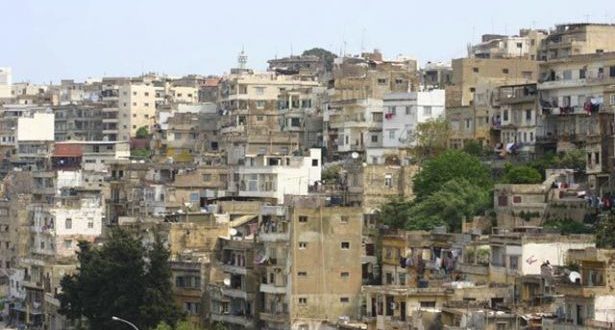Tenants under the old rent law have begun to leave the properties they have lived in for decades, following legislation passed in March that favored the rights of property owners. The law, which impacts approximately 200,000 apartments, mostly in Beirut and its suburbs, allows for an incremental increase in rents, in many cases amounting to less than LL1 million ($667) a year.
One of the elements owners criticized was the requirement for landlords to pay compensation to tenants who agree to leave the properties within the nine-year grace period.
The new bill established compensation for these tenants at four times 4 percent of the property market value, an amount that is set to decrease at a rate of one-ninth yearly until no compensation is provided.
Despite the criticisms voiced by property owners, compensation is being paid to tenants who are willingly vacating properties leased under the rent law prior to 1992.
.
President of the union of property owners Joseph Zogheib said that he saw the compensation as “ransom money.”
“If you add up all the money we got in rent over [several decades] it’s not going to add up to the money we have to pay in ransom,” he said. “They were taking our properties hostage in the name of an unconstitutional law.”
Tenants are following the approval of the new bill voiced concerns that the rent hikes in Beirut would push them out of the city. Roy Feghali, a tenant under the old rent law living in Hikmeh, claimed his salary as an engineer would not be enough to maintain him and his elderly father in their current flat under the new bill. “My rent will increase from $70 to $1,050 per month over six years, which I cannot afford,” he said during a protest held in March.
A recent study conducted by urban research studio Public Works on the “old fabric” – buildings constructed in the same time span as those that fall under the old rent law – in six neighborhoods found that a very large percentage of inhabitants are renting. “The average in Beirut is 50 percent and this was confirmed by our studies, but there were also neighborhoods where the percentage was higher,” Abir Saksouk, co-founder of Public Works, told The Daily Star.
Among those who are renting out properties, a sizable number of households are under the old rent law – 30 percent in the Rmeil neighborhood and 20 percent in Al-Tariq al-Jadideh, for instance. In parallel, the study identified the existence of a large number of abandoned buildings – fluctuating between 10 and 20 percent in the six neighborhoods examined. Public Works recently launched BeirutEvictions.org in order to monitor developments with regard to housing in Beirut.
most of the properties where demolitions or evictions have so far taken place had been purchased by real estate developers.
 Lebanese Ministry of Information
Lebanese Ministry of Information



